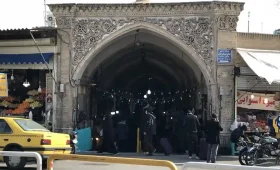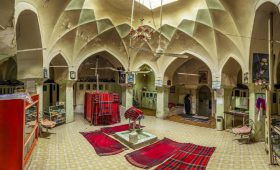Historical Architecture in Qom
Architecture is one of the oldest professions in human history. And it is defined as the art and science of designing and constructing buildings.
Even though Modern architecture has caused changes in how we live and function as a society, many of the basic concepts of architecture still draw on how ancient structures operated.
Without a single doubt, our country, Iran, has a rich history in architecture.
Architecture of Qom is the religious capital of Iran, and you can find many unique and valuable buildings in Qom that are built during different periods of history. These fascinating architectures are worth seeing, and they represent the place where they belong.
Traditional Houses

In the past Confidentiality was considered an important architectural element, serving several purposes, and it divides the house into inner and outer parts.
Their design reflects the religiously affiliated architecture of the past, and the colors and materials used in decorations are influenced by climatic conditions.
Most of them contain an inner courtyard, often with a small pond, that gives them a stunning view.
Yazdan Panah House, Zand House, and Tabatabaei house are some unique examples.
Mosques

The architecture of mosques is shaped by the regional traditions of the time and place and evolves gradually in response to community spiritual needs.
In Qom, mosques are one of the most popular places that are valuable to people and conjugated with culture and religion.
For example, the Jameh Mosque of Qom which is located downtown is a complex including several buildings related to different historical periods.
Bazar

Since this city has kept its connection to its root culture and traditions, many local Bazaars are found here.
Unlike modern shopping centers, every aspect of native culture, from the local products to common foods, carpets, copper pots can be found in Qom Bazaars.
Timcheh is a roofed hall bazaar comprised of a couple of shops which is the main trade center of Qom’s silk carpets.
There are many bazaars in Qom, but this particular one is historically and culturally significant.
Written by: Reihanneh Vaezi



nice info about the architecture